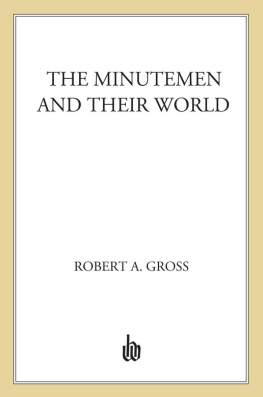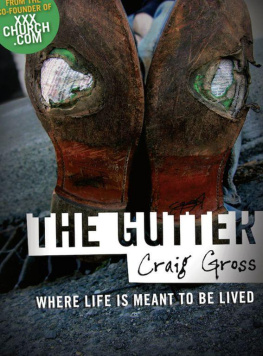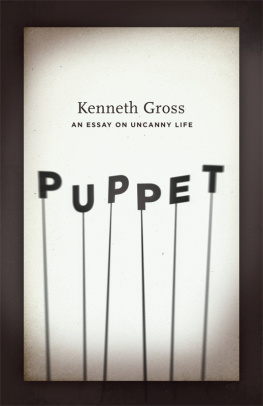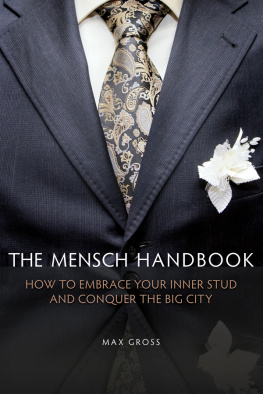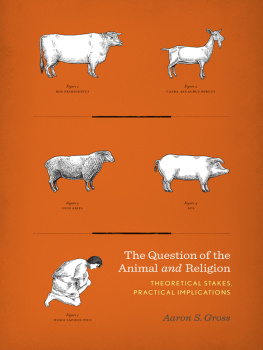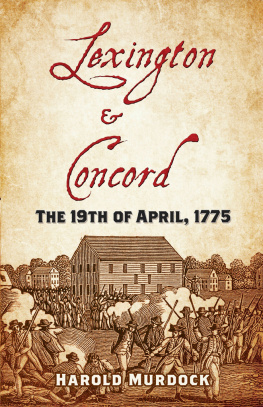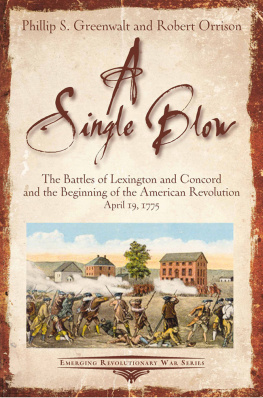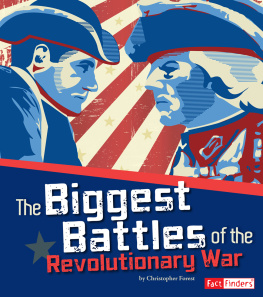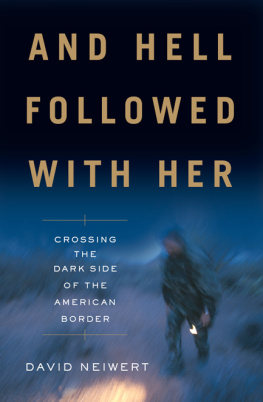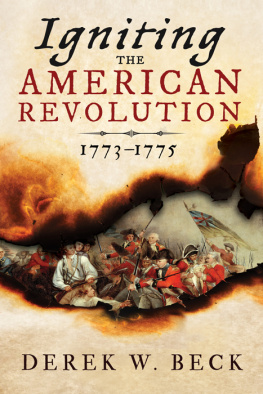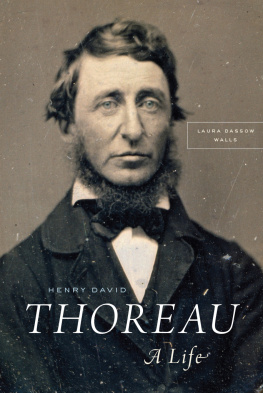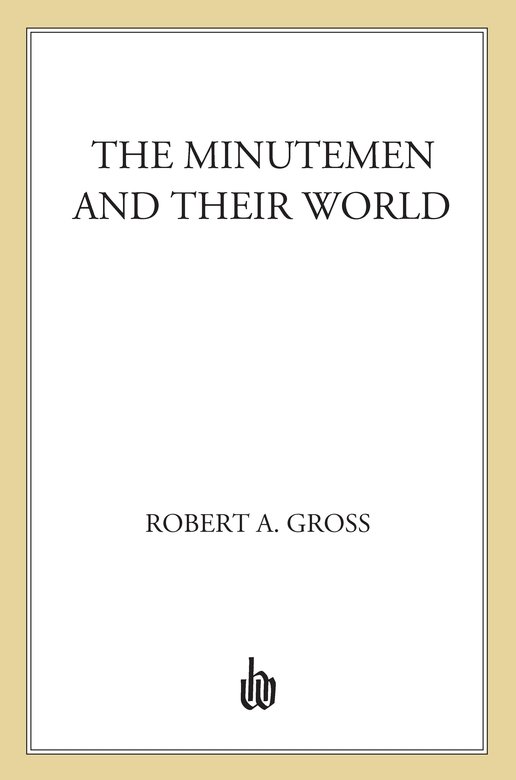I NEVER meant to write The Minutemen and Their World. Back in 1971, when I moved to the Boston area, I was a devotee of the new social history, inspired by the community studies of New England towns that had burst upon the historical landscape the year before. To a rising generation of graduate students in the late 1960s and early 1970s, that approach heralded a revolution in the study of the past, a means to make real the democratic sympathies for ordinary people that was captured in calls to write history from the bottom up. For too long, it was thought, the story of American history had been dominated by white male elites (dead white men, as they were derisively dismissed) holding forth on the political stage, squabbling and scrambling for office and power in contests over issuesbanks, tariffs, currency, foreign policyfar removed from and often irrelevant to the ways most men and women lived. But how to recover the voices and experiences of common folk, who left behind few of the diaries, letters, and speeches on which historians usually relied? The new social history promised to do so by tapping overlooked sourcestax lists, censuses, vital records and genealogies, town meeting minutesthat surveyed and counted the people en masse and by analyzing them in the aggregate with the new tool of the computer. From such inquiries would emerge the general patterns and large-scale structures of everyday existence and of social change. That Archimedean perspective turned the familiar narrative of American history upside down. The new heroes were anonymous Americans, through whose collective actions the inarticulate would finally speak.
Stirred by this populist movement in historiography, I picked upstakes in Manhattan, where I had been writing for Newsweek and studying for the Ph.D. at Columbia University, and made my way north in search of the ideal New England townideal, that is, for a new social historian eager to explore the transformation of rural society in the first half century of the American republic. That investigation grew out of my reading of Philip Grevens Four Generations and Kenneth Lockridges A New England Town , which, along with John Demoss A Little Commonwealth and Michael Zuckermans Peaceable Kingdoms , had put community studies of colonial New England in the forefront of the new social history. Those parallel studies of Andover and Dedham, Massachusetts, had developed a picture of communities under pressure, barely containing the explosive forces reverberating from a century of population growth. Founded in the great wave of Puritan migration, these towns matured into substantial settlements, as the numerous progeny of the founding families took up the available land and parceled it out, one generation after another, into farms. By the eve of the American Revolution, the age of abundance was over; as in the Old World, so in the New, an expanding population was pressing on existing resources. The result was apparently an agrarian crisis, marked by increasing landlessness and poverty, rising economic inequality, deepening social divisions, and an accelerating emigration to new settlements on the frontier. Did these grim developments, born of the stern Malthusian laws of demography and economics, intensify in the new republic? How, if at all, did Yankee farmers cope with changing circumstances and adapt to an emergent world of factories and cities?
With these questions in mind, I made my first forays into New Englands agricultural past, with no inkling that Concord would be my destination. Far from it. As I surveyed the possibilities for a dissertation, I noticed that many New England towns, from Connecticut to Vermont, lost population over the decades from Independence to the Civil War, and I began to wonder about the experience of rural decline. In a nation that prided itself on progress, what was the human story behind towns that went downhill? To write the history of failure, rather than success, was to challenge the dominant narrative of the United States, and that suited my mood in the climate of dissent that continued beyond the 1960s. Though the new social history wasdriven by various concerns, it held a particular appeal for younger scholars with sympathies for the New Left. Exposing the empty promises of the American dream, documenting the racism, sexism, and class exploitation of the reality behind the myth, revealing the resistance of the subordinate classes to injustice and oppression: such tasks constituted the essential agenda for two generations of historians, extending to the present. A social history of decline and failure, I considered, would advance that project. Ironically, it led me to Concord and the American Revolution.
When Ralph Waldo Emerson delivered the historical discourse at Concords Bicentennial in 1835, the scion of ministers dating back to the towns founding was alert to the economic signs of the times. A Boston native who had just returned to the quiet fields of my fathers, Emerson noticed the continuing exodus of the young from local farms and shops. Of late years, the growth of Concord has been slow. Without navigable waters, without mineral riches, without any considerable mill privileges, the natural increase of her population is drained by the constant emigration of the youth. Her sons have settled the region around us, and far from us. Their wagons have rattled down the remote western hills. Concord thus seemed to fit my bill: a static place in a booming nation. Even better, it was a historic community, with an intrinsic interest to all students of the American past. Grevens Andover and Lockridges Dedham claimed attention merely as instances of larger social and economic developments. Concord could serve that purpose. But it was also a household name. The home of Emerson and Thoreau, as well as of Nathaniel Hawthorne and Bronson and Louisa May Alcott, Concord was the headquarters of the far-ranging literary and intellectual movement known as New England Transcendentalism. From the Old Manse in Concord, Emerson summoned his fellow Americans to free themselves from a dead past and to forge an original relation to the universe; a decade later, at Walden Pond, Thoreau decried the lives of quiet desperation led by his countrymen under the false illusion thatthey had no other choice. Taking up these questions, I dropped the large-scale study of declining towns, took up residence in Concord, and pursued the social history of one community and its writers in an era of economic change. That topic called on the interdisciplinary interests I had pursued as an undergraduate studying American civilization at the University of Pennsylvania, and it would sustain much of my research and writing during the next twenty-five years. But it failed to produce a Ph.D. dissertation. It was derailed by the Minutemen at the Old North Bridge.
Military history no more suited my mood than did triumphal tales of national progress. In the early 1970s, the war in Vietnam was still devastating Southeast Asia and ravaging the lives of Vietnamese, Cambodians, and Americans alike. As an intense opponent and occasional demonstrator against U.S. involvement in that conflict, I had no desire to revisit the scenes of American military exploits, however distant in the past. My sympathies lay with the Thoreau who mocked the vainglory of the local militia assembled on Concord common, the distant report of whose cannon echoed like popguns in the Walden woods, and who went to jail for a night to protest the Mexican war. (I skipped over the inconsistent pacifism in his support for that guerrilla warrior against slavery John Brown.) Yet, I found myself drawn as often to the Minuteman National Historic Park in Concord as to Walden Pond. That was partly due to the impending bicentennials of the Concord Fight and of the American Revolution it set in motion. Amid the gathering publicity for the upcoming anniversary, I accompanied visiting friends time and again to the restored battleground onwhich colonists and Redcoats once fought. That pastoral setting, along the banks of the Concord River, had a haunting simplicity, with its reconstruction of the plain wooden bridge that had once arched the flood and with the stone foundations of old homesteads exposed to view. On this groundthe very farmland I had originally aimed to studythe embattled farmers had stood/And fired the shot heard round the world. The scene had entranced observers from Nathaniel Hawthorne to Henry James, and it was (and is) a magnet for tourists, especially during the Bicentennial. Nobody, not even a new social historian, not to mention the crowds of youthful dissenters who gathered on the site in a countercultural commemoration on April 19, 1975, could escape its spell.

